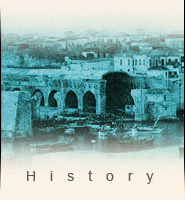
Songs and Dance
"Before eleven o'clock these sports were abandoned, and the dance and its accompanying song were commenced. The cyclic chorus exhibited consisted of six women and as many men, each of which held the hand of his neighbour. The coryphaeus favoured us by singing various poetical effusions as they danced... The little songs thus sung, at the present day, are called Madhinadhas by the Cretans; I collected many of them during my stay in the island. The commonest of all such songs of the Cretan peasant is "a woeful ballad, made to his mistress' eyebrow." The following are specimens.
O thou, my much-beloved maid,
Branch of a lofty tree
With thee what mind can converse hold?
Who can dispute with thee?
Bear witness brightly shining Moon,
And Hághio Kostandí!
Beauties like thine 'neath the expanse
Of Heaven I ne'er did see.
(Robert Pashley, Travels in Crete, Cambridge: The Pitt Press 1837, vol. ╔: 245-247)
O thou, my much-beloved maid,
Branch of a lofty tree
With thee what mind can converse hold?
Who can dispute with thee?
Bear witness brightly shining Moon,
And Hághio Kostandí!
Beauties like thine 'neath the expanse
Of Heaven I ne'er did see.
(Robert Pashley, Travels in Crete, Cambridge: The Pitt Press 1837, vol. ╔: 245-247)
The Candiotikos or Candia dance, 1820 (Gennadius Library, American School of Classical Studies at Athens, Athens)
Sketch of women dancing to Cretan bagpipe music, 1783
1669
1669
1669
1669
1671
1681
1688
1691
1692
1715
1735
1735
1770
1771
1780
1810
1810
1812
1821
1822
1822
1823
1824
1825
1828
1830
1831
1833
1840
1841
1850
1856
1858
1858
1862
1862
1866
1866
1868
1869
1875
1878
1878
1881
1889
1895
1895
1897
1897
1898
1898
1898











